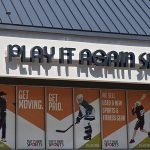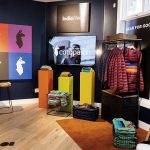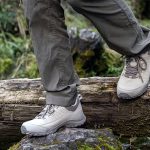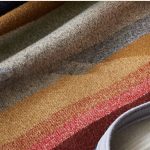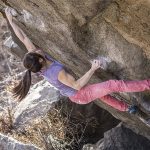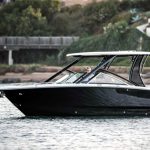Collective Brands Inc. reported another steep decline in quarterly profits before extraordinary items due to weak traffic at its Payless chain. But the company achieved its goals of increasing market share, lowering its cost structure, and generating healthy cash flows. The Saucony brand delivered double-digit gains again and the kids business at Payless also showed relative strength.
Excluding sales in the year-ago period from the expired Tommy Hilfiger adult footwear license, sales were down 6.6% in the second quarter. Net earnings attributable to Collective Brands, Inc. reached $18.7 million, or 29 cents a share, versus $8.1 million, or 13 cents, in the year-ago period. Year-ago earnings were pulled down by litigation expenses and the final year of the Tommy Hilfiger adult footwear license. Excluding these items, earnings in Q2 were down 41.6% compared with $32.0 million, or 50 cents a share, in the year-ago period.
Collective's overall retail comps declined 7.3% due to weakness at Payless International and foreign currency exchange rates. Without the unfavorable impact of foreign currency, comps declined 6.2%.
Domestically, the Payless retail businesses increased market share in footwear during the quarter, driven by nearly flat children's sales at both Payless and Stride Rite in a down market. At Payless Domestic, sales declined due to lower consumer traffic, partially offset by a 5% gain in average unit retail prices and increased accessory sales. Payless Domestic's comps declined 6%.
On a conference call with analysts, Matt Rubel, company chairman, CEO and president, indicated that the lower comps at Payless Domestic reflects the fact that “moms are shopping less for themselves,” On the positive side, research still indicates an increase in the percentage of women who say they are likely to shop at Payless over the next 12 months. Also positive is that moms continue to shop as much if not more for their children. Growth across a number of categories in children's footwear were driven in large part by a greater breadth of good-priced tiered sandals and the completed rollout of children's extended sizes to all stores. Rubel said sales were off to a “solid start” in the third quarter and they were “encouraged” by the results of their back-to-school strategy.
Payless International's net sales declined due to the economic slowdown, resulting in lower traffic in Canada and in Puerto Rico. In addition, results were unfavorably affected by foreign exchange rates related primarily to Canada, as well as the regulatory factors and additional import taxes in Ecuador. This was partially offset by 25 new store openings in Colombia. Operating profit declined primarily due to lower sales in Canada and Puerto Rico combined with increased costs to comply with the changes in Ecuador. Rubel said growth continued to come in Latin America, where he said economies are “starting to recover.” Political factors hampered performances in Ecuador and Honduras. Newer stores in the Middle East continue to exceed expectations, and a new franchisee agreement was just reached for Russia.
The Stride Rite Wholesale net sales decline was due primarily to the expiration of the Hilfiger license and lower Keds sales attributed to its strategic repositioning. Operating profit decreased due to increased promotional selling, the expiration of the Hilfiger license and higher product costs. Rubel said Saucony's double-digit gain was driven by broad-based strength across all of its selling channels, domestically and in Europe. Core Saucony footwear platforms such as Ride and Guide drove the gains, as well as a good response to an updated Triumph model.
Sperry Top-Sider increased its overall sales per door and has been particularly strong in the premium channel. Sperry's new anti-shock vibration footwear “has gotten off to a great start” and adding product beyond boat shoes has also increased penetration in the market.
Keds “is starting to gain traction” with its renewed focus around the Champion model with particular success at premium and trend-leading accounts. Keds’ profitability is also running higher due to more first quality sales. Internationally, Keds saw good results in the U.K.
At Stride Rite Kids, the launch of a sensory response technology collection for toddlers is helping the brand gain market share.
Stride Rite Retail's sales were flat as the impact of higher sales at outlet stores and an additional nine stores were offset by lower comps at children's specialty stores. The operating loss increased due to the comp decline and greater promotional activity. Merchandising lines with updated good, better and best price tiers as well as improved inventory management will be a priority for the stores.
The overall 200 basis point gain in gross margin was primarily due to litigation expense last year, higher initial mark-up, and increased direct sourcing. These factors offset declining sales, promotional activity, and merchandise cost increases.



